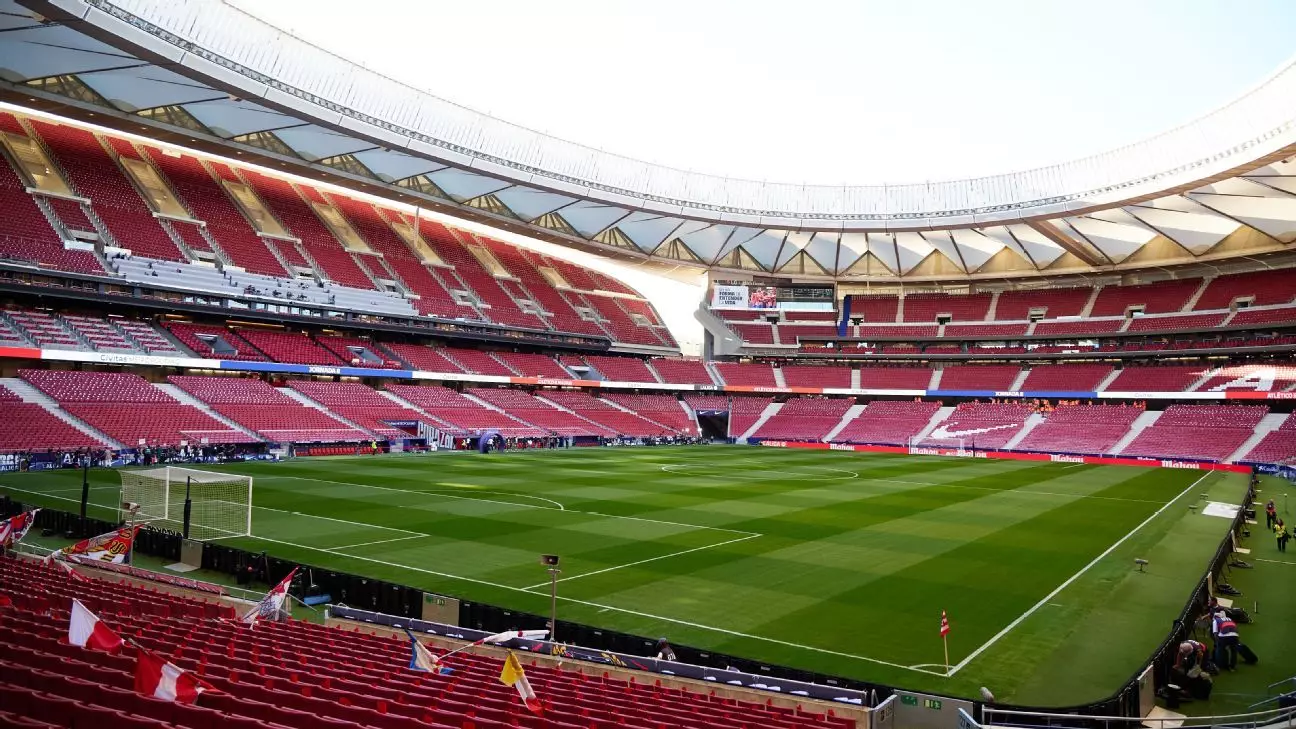In an era where branding is crucial for global recognition, Saudi Arabia has made a pronounced statement by securing the naming rights to Atlético Madrid’s stadium, now officially known as the Riyadh Air Metropolitano. This nine-year agreement, confirmed by the club on a Wednesday, marks yet another pivotal moment in the relationship between Middle Eastern nations and European sports institutions. With Riyadh Air already sponsoring the team since last season, this move reflects a broader strategy by Saudi Arabia to enhance its visibility on the international sports stage.
This partnership is not just a fleeting promotional tactic; it underscores the ambitions of Saudi Arabia to position itself as a key player in global sports. The naming rights deal is significant as it substitutes the previous sponsorship agreement with Spanish real estate developer Civitas, and even the initial deal with the Chinese real estate group Wanda. These shifts show the kingdom’s resolve to deepen its impact in sports, particularly as it gears up to host major international sporting events.
While Atlético Madrid has refrained from disclosing the financial details of this recent naming rights agreement, it’s evident that this contract elevates the status of Riyadh Air as one of the most important sponsors in the club’s history. Atlético benefited from a lucrative shirt sponsorship agreement that ran from 2023 to 2027, reportedly valued at €40 million ($44 million) per season. Such figures highlight how sports sponsorship is morphing into a vital revenue stream for clubs trying to maintain competitiveness in an increasingly commercialized landscape.
The infusion of funds from Saudi sponsorship is vital, especially as the world faces economic shifts and challenges stemming from geopolitical tensions. The strategic alliance signals a robust direction for both the club and the Saudi government’s efforts to diversify its economy away from an oil-centric model.
The establishment of Riyadh Air in March 2023, announced by Saudi Crown Prince Mohammed bin Salman, illustrates a targeted approach toward enhancing the kingdom’s profile in international sports. This move is not incidental; rather, it dovetails with the nation’s broader Vision 2030 initiative aimed at restructuring Saudi society and bolstering its tourism sector. Hosting mega-events such as the 2034 World Cup, for which Saudi Arabia is the sole candidate, plays a crucial role in this framework.
However, this rapid development has not been without controversy. Saudi Arabia’s human rights record raises significant concerns, particularly regarding the treatment of migrant workers within the kingdom. A complaint lodged by a coalition of global trade unions to the International Labor Organization alleges severe human rights violations, a narrative that complicates the kingdom’s push into international sports. As the nation attempts to reshape its image through sports, these underlying issues cannot be ignored and will likely impact the broader perception of its efforts in global branding.
Atlético Madrid’s leadership, particularly CEO Miguel Ángel Gil Marin, is now at the intersection of significant negotiations that could influence the timeline and logistics of the 2034 World Cup. His role with the European Club Association empowers him to contribute to strategic discussions that affect FIFA and its tournament scheduling, illustrating the depth of influence that emerging markets like Saudi Arabia can exert on traditional European sports frameworks.
Moreover, the collaboration does not stop with Atlético Madrid. Dan Friedkin, owner of the Italian club Roma, has aligned with Saudi interests through his own sponsorship deals, showcasing Riyadh’s commitment to embedding itself genuinely into the fabric of European football. This multifaceted approach demonstrates a calculated effort to expand influence through various clubs and associations.
The burgeoning partnership between Saudi Arabia and prominent European clubs like Atlético Madrid signifies more than a simple commercial transaction; it embodies a strategic blueprint unveiled by the kingdom to secure its place on the global sports stage. As these relationships evolve amid geopolitical, economic, and cultural currents, the ramifications for not only the clubs themselves but the broader international community remain profound. Saudi Arabia’s ambition to reshape its image through the lens of sport is a powerful testament to how countries can leverage branding in an increasingly interconnected and competitive world.

